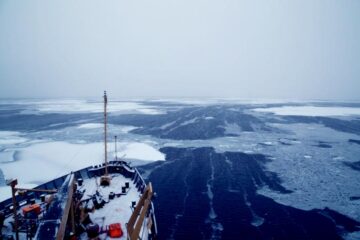Earth Sciences (also referred to as Geosciences), which deals with basic issues surrounding our planet, plays a vital role in the area of energy and raw materials supply.
Earth Sciences comprises subjects such as geology, geography, geological informatics, paleontology, mineralogy, petrography, crystallography, geophysics, geodesy, glaciology, cartography, photogrammetry, meteorology and seismology, early-warning systems, earthquake research and polar research.

… highlights sea ice response to climate change. A new study published in the European Geosciences Union journal The Cryosphere could improve our understanding of changes in the atmosphere–ice–ocean system…

Airborne campaign solves parts of the riddle of clouds. In a major field campaign in 2020, Dr. Raphaela Vogel who is now at Universität Hamburg’s Center for Earth System Research…

A warming climate is causing a decline in sea ice in the Arctic Ocean, where loss of sea ice has important ecological, economic and climate impacts. On top of this…

– what does this have to do with volcanoes? Despite their differences, cold powder avalanches and hot pyroclastic flows during volcanic eruptions do have a number of things in common,…

Researchers at the University of Bonn have developed a method that allows the water level of rivers to be monitored around the clock. The cost-effective sensor is for instance suitable…

New study shows that particles from central South America were the main source of iron in the South Pacific during the last two glacial periods. Dust from the dry Puna…